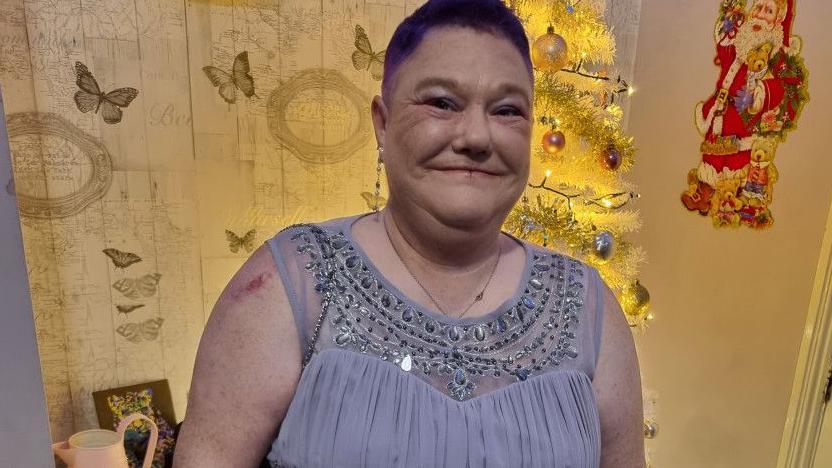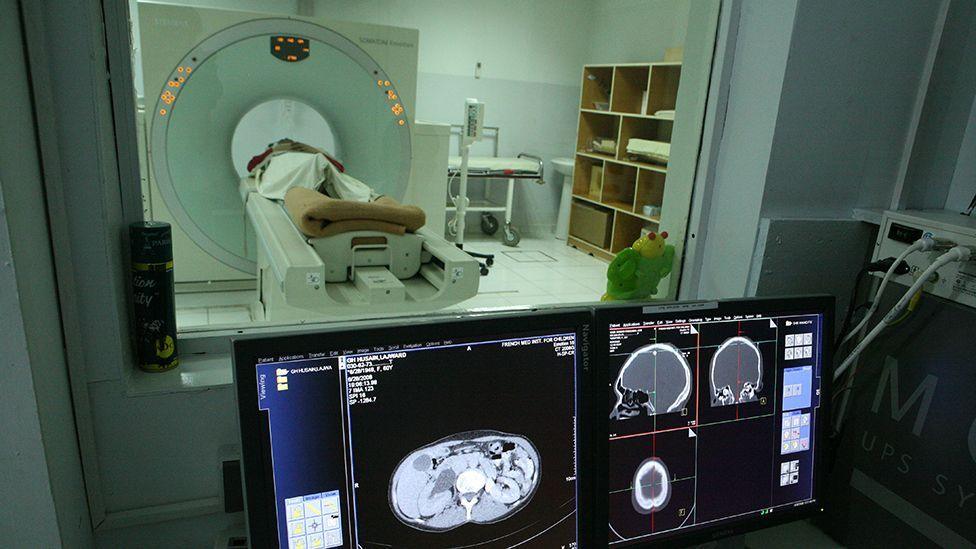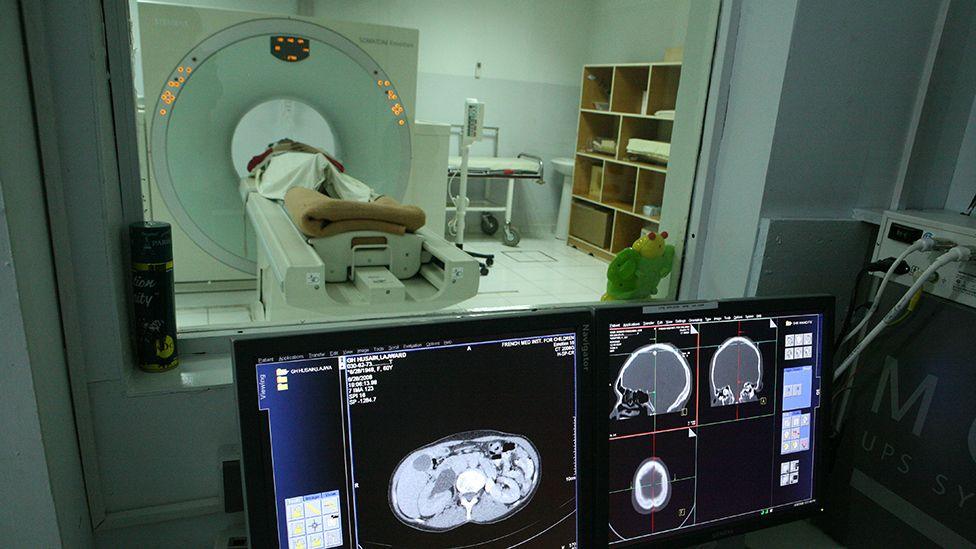Cancer diagnoses delays for learning disabled people

Annabell Downey said she had to see her doctor "countless times" before she was diagnosed
- Published
People with learning disability are being diagnosed with cancer too late, according to research from The University of Manchester and The Christie hospital.
A study found symptoms were investigated less often, the patients received less treatment, and had a poorer prognosis.
Researchers said the results, published in The Lancet, were the "most comprehensive investigation ever carried out" and used "huge national datasets".
The Department for Health and Social Care spokesman said: A Department of Health and Social Care spokesperson said: "It's unacceptable that people with learning disabilities aren't getting the care they need."
People with learning disabilities were about half as likely to be referred for urgent investigation when they had possible symptoms and they were more often diagnosed when the cancer was incurable, the study found.
Life expectancy "was significantly shorter", particularly among those with severe learning disability or Down's syndrome, and most died within four years of diagnosis, compared with nine years in the rest of the population.
The study found that several cancers were more common among people with learning disabilities.
Cancers of the central nervous system were three-and-a-half-times higher, testicular cancer was twice as high, and uterine cancer was about 70% higher compared with the general population.
People with learning disabilities were also found to be more than 70% more likely to develop cancer before the age of 50, and this was especially strong for nervous system, uterine, ovarian and digestive tract cancers.

Patients' communication issues are sometimes ignored, the study found
Lead author Dr Oliver Kennedy, Clinical Lecturer at The University of Manchester and The Christie said was an "urgent need" to improve detection and care.
He added : "We already know that people with a learning disability face poorer health outcomes, but the burden of cancer in this population is poorly understood."
Principal Investigator Prof Darren Ashcroft from The University of Manchester added people with a learning disability "frequently encounter barriers to healthcare access, such as communication difficulties and diagnostic overshadowing, where clinicians might attribute new symptoms to an existing diagnosis".
Jon Sparkes OBE, chief executive of learning disability charity Mencap, said the NHS "must do better", adding : "It's unacceptable that late diagnosis and lack of urgent referral for treatment is costing people with a learning disability years of life.
Annabell Downey, supported is by Mencap in Hexham, Northumberland, and who has terminal cancer, said she saw her doctor "countless times" before she was diagnosed after complaining of back pain.
"I struggled to convey that sometimes I'd be fine, other times I'd be curled up in agony," she said.
The Department for Health and Social care also said: "This government inherited a health system in crisis and we're working at pace to improve cancer care, including for people with learning disabilities.
"But we know there is more to be done, which is why we've introduced the life-saving patient safety initiative Jess's Rule supporting GPs to catch serious conditions earlier."
Get in touch
Tell us which stories we should cover in Greater Manchester
Listen to the best of BBC Radio Manchester on Sounds and follow BBC Manchester on Facebook, external, X, external, and Instagram, external. You can also send story ideas via Whatsapp to 0808 100 2230.
Related topics
- Published4 October 2024
